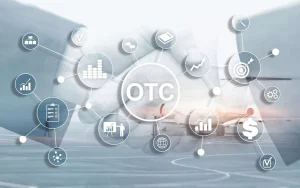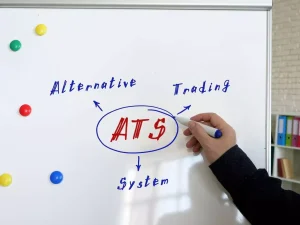The increasing market volatility, introduction of new regulations, and fluctuating exchange rates of fiat currencies contribute to the popularity of tokenized holdings. Retail businesses, brokers, and capital investors discover how to leverage intangible goods and adopt innovative practices. In this article, we will analyze the key benefits of digital assets trading and consider the differences between various types of non-material products utilized as a medium of exchange. The transformation of the financial sector due to tokenization necessitates exploring new investment opportunities and learning how to increase profits in changing conditions.
What Is Digital Asset Trading?
The term encompasses operations with decentralized currencies, non fungible tokens (NFT), stablecoins, and other types of assets stored online. Believed to have a specific value, these blockchain-based assets can be purchased, sold, and exchanged on web-based platforms. When holders trade digital assets, they strive to sell the securities at the desired price to maximize returns.
Advanced technologies facilitate employing progressive strategies to increase gains and avoid potential hazards related to the volatile nature of crypto. Utilizing a digital asset exchange, individuals get access to automated trading tools that facilitate placing orders at lightning speed.
Leveraging bots based on advanced algorithms and analyzing technical indicators facilitates making the right decisions and increasing earnings by tracking the market dynamics.
Smart contracts foster deal finalization as they are executed automatically based on specific conditions. The irreversibility of financial operations involving crypto is another argument in favor of virtual securities.


Turnkey Brokerage Solution For Your Business
Get the most profitable fully licensed fx/crypto brokerage software or ready-to-operate business in 48 hours. Best-in-class web & mobile trading platforms, sales-driven CRM, full integration with MT4/5, and 150+ payment providers.
How Does Digital Asset Trading Work?
Brokerages, centralized and decentralized exchanges, and other platforms facilitate the buying and selling of virtual holdings and have a variety of tools streamlining financial dealings. After signing up on a web-based marketplace, a user immediately gets access to the functionality of the service.
Traders also utilize crypto wallets with integrated tools that streamline trading. Such solutions expedite the selling of virtual currencies. In addition, holders store securities in offline hardware wallets to protect them from unauthorized use. Earning money may involve the following strategies:
- Finding an exchange with the most favorable rate;
- Holding an asset until its price significantly increases.
Both approaches have upsides and downsides. A trader should make an accurate prediction about current trends and invest in multiple securities to minimize losses.

Importance of Digital Assets
Increased investments into virtual securities signify the global adoption of distributed ledger technology. Below, we have outlined the key factors contributing to the success of such holdings:
- Transparent operations: Every transaction is recorded on a blockchain, which facilitates tracking, auditing, and verification.
- Decentralized Finance (DeFi): Due to smart contracts, there is no need to use intermediaries.
- Tokenisation: Virtual tokens represent ownership rights of all kinds of assets.
By employing SaaS workflow automation tools, investors leverage cutting-edge solutions to expedite deals. Digital assets trading has multiple benefits:
- Increased liquidity: As securities can be sold without delays, individuals access their holdings whenever they need to convert them into fiat currencies.
- Portfolio diversification: Relying only on traditional assets is not devoid of any risks. Besides, this type of trading fails to generate significant income. By investing in NFTs, stablecoins, and DeFi tokens, investors diminish possible risks and adjust strategies depending on the changing environment.
- Convenient tools: Integrating algorithmic trading solutions maximizes ROI and enables buyers and sellers to make fast transactions while enjoying full privacy.
Exchanging assets without a middleman streamlines financial operations and contributes to market democratization.
Examples of Digital Assets To Trade
Users of exchange platforms conduct operations with a variety of virtual securities. They typically invest in the following types:
- Cryptocurrency: Blockchain technology involves using cryptographic algorithms to ensure the security of operations.
- Stablecoins: Such assets stand out for their stable value, which explains their popularity.
- Central Bank Digital Currencies (CBDC): Virtual assets backed by fiat facilitate cross-border deals.
- NFTs: These securities symbolize the ownership of specific collectibles, real estate, and other holdings.
Operations with tokens become a suitable alternative for those who want to increase earnings without making significant financial commitments.
Blockchain Technology & Digital Asset Trading Platforms
Utilizing a distributed ledger facilitates creating, storing, and selling virtual currencies without using third-party services. All the transactions are validated by blockchain participants, which makes them impossible to forge.
The development of the digital asset market becomes possible due to regulated exchanges where investors can conduct various operations with securities utilizing peer-to-peer transactions. A decentralized financial system enables investors to participate in staking or earn money when the assets they hold become more expensive. Maintaining transparency allows such platforms to win user trust and minimize the need to employ centralized solutions like banks.
Digital assets trading facilitates direct transactions and enables investors to capitalize on price fluctuations. Utilizing secure online platforms to exchange securities, individuals eliminate risks, access order placement and trend analysis tools, maintain compliance with current regulations and participate in transaction validation. Due to transaction transparency, decentralized networks are safe to use. Besides, they expedite transactions that aren’t officiated by traditional financial institutions.






